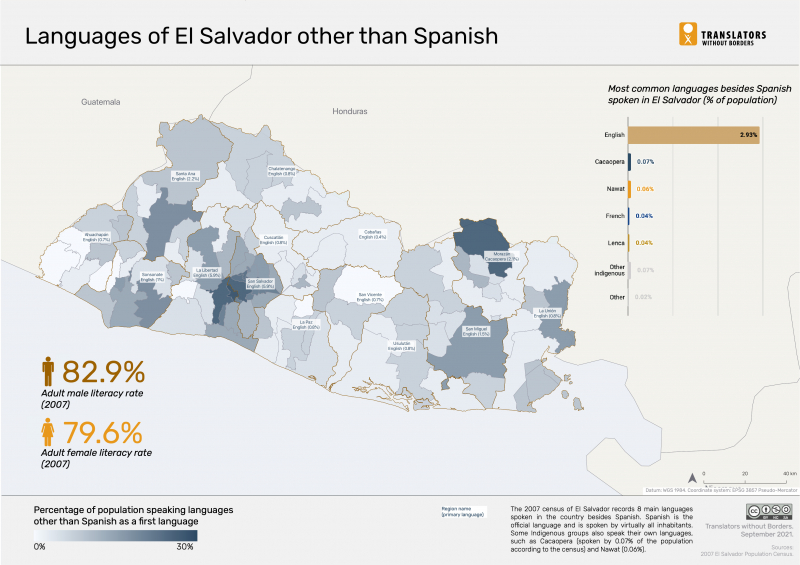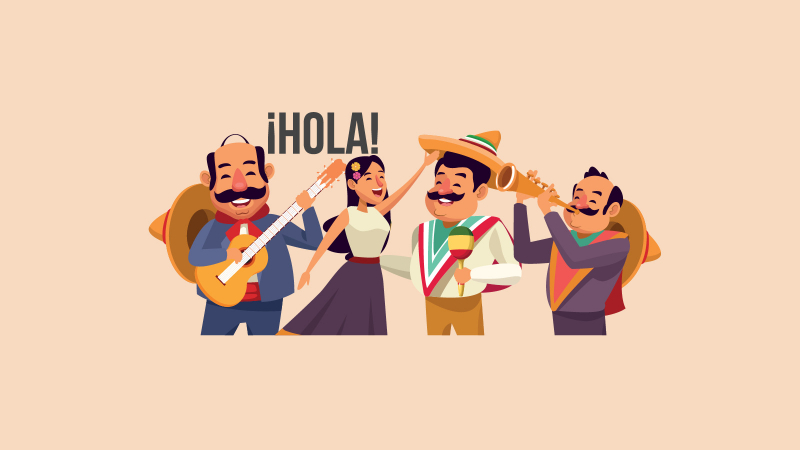Language
El Salvador's 2007 census records eight major languages spoken in the country, in addition to Spanish, which is the official language. According to the 2007 census, some Indigenous groups, such as Cacaopera (spoken by 0.07% of the population) and Nawat (spoken by 0.06%), speak their own languages. Other sources claim that Poqoman is one of the most widely spoken Indigenous languages in the country, whereas Cacaopera is thought to be extinct, and we have been unable to confirm these claims. According to the census, Indigenous immigrants from Guatemala and Belize who live in El Salvador speak Q'eqchi'. The wording of the census questions makes it impossible to determine whether any segments of the population are monolingual in languages other than Spanish.
The Spanish spoken in El Salvador is known as Salvadoran Spanish. Although the dialect is similar to those spoken in neighboring countries, there are significant differences in usage and pronunciation. The nation speaks and writes in Voseo Spanish, while Usted is primarily used to address foreigners formally. Caliche is El Salvador's local vernacular of Spanish. Caliche is distinct from Salvadoran Spanish in that it has its own set of lexical terms and colloquialisms. Caliche is primarily influenced by Nahuatl and is popular throughout the country's social classes. Professionals, on the other hand, avoid speaking Caliche because it is not considered "proper Spanish."









